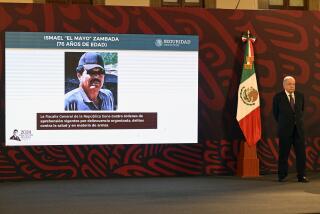Pastorâs kidnapping underscores threat to migrants returned to Mexican border towns
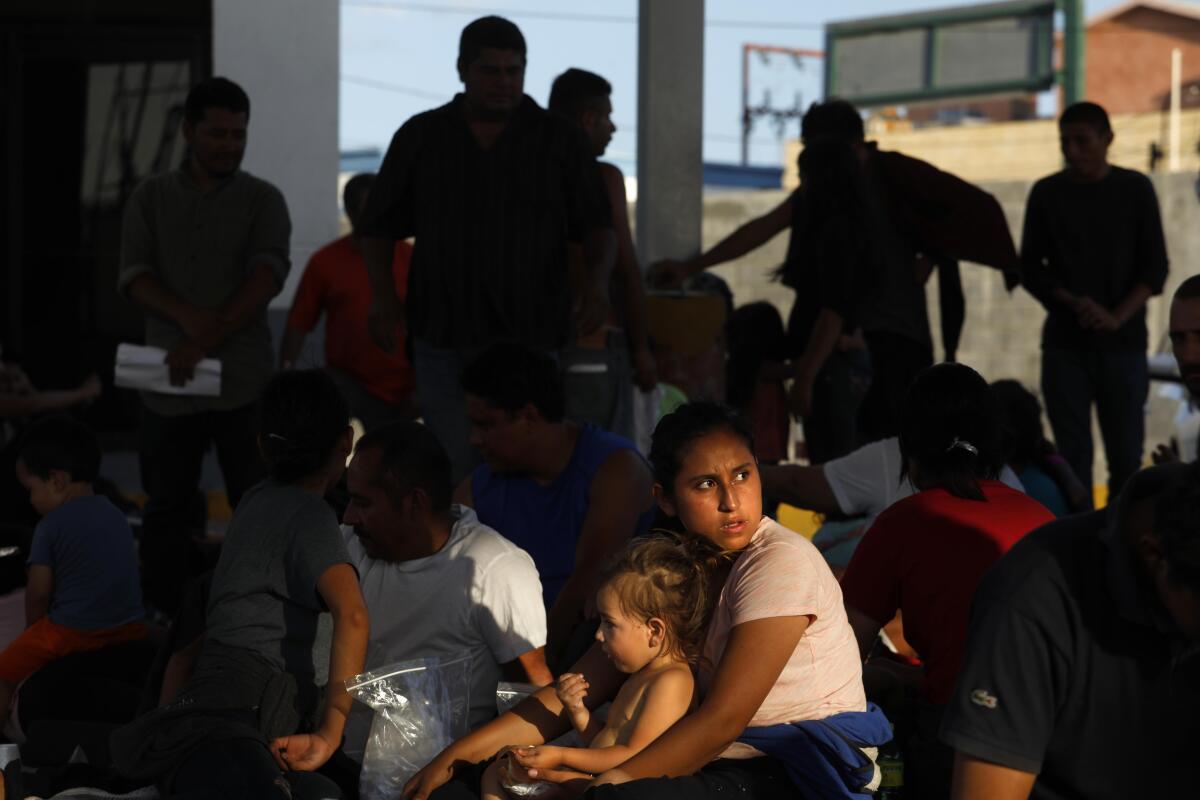
NUEVO LAREDO, Mexico â The kidnappers came to the shelter near the U.S.-Mexico border looking for Cuban migrants, favored targets because relatives in the United States are known to pay exorbitant ransoms to free abducted loved ones.
In cartel-dominated Nuevo Laredo, Mexico, a gateway to the United States, itâs a lucrative racket: Snatch a migrant from Cuba, Honduras, El Salvador, Guatemala, Venezuela or elsewhere; commandeer their cellphones; then call U.S. relatives demanding thousands of dollars.
No need to spell out the consequences of nonpayment in the lawless Mexican border state of Tamaulipas, known for mass graves and massacres of migrants â including hundreds slain by gunmen of the Zetas cartel outside the town of San Fernando in 2010-11.
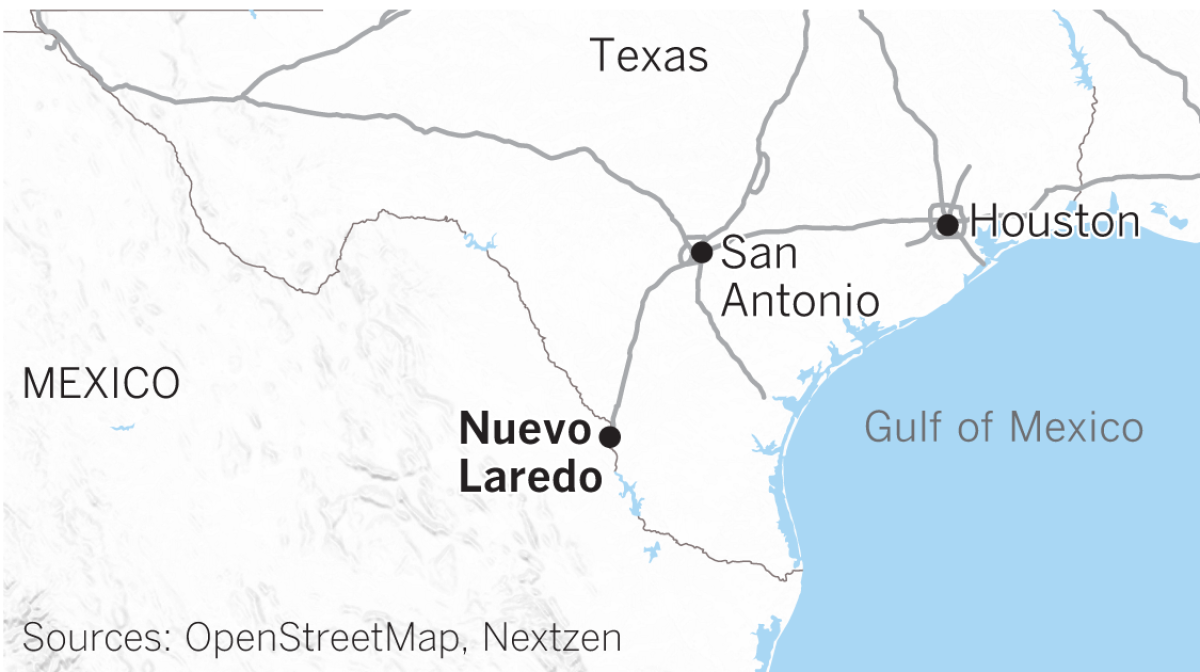
On Aug. 3, when the Rev. Aaron Mendez, an evangelical pastor and head of the Amar shelter, refused the kidnappersâ demands, the thugs took him away.
The pastor entered the twilight world of Mexicoâs âdisappearedâ â officially 37,000 and growing, with Tamaulipas state leading Mexico in the grisly statistic. Federal and state police are investigating what happened to Mendez, said Ivan Moyle, a spokesman for the Tamaulipas prosecutorâs office, who declined to comment further.
The case has dramatized the systematic fashion of abductions and shakedowns faced by migrants and others at an especially sensitive time â when U.S. authorities have been expelling tens of thousands of Central Americans, Cubans and others back to Mexicoâs crime-ridden border cities under the Trump administrationâs Migrant Protection Protocols, known informally as âRemain in Mexico.â
Under the program, rolled out in January in the border cities of Tijuana and San Diego â and later expanded to other U.S.-Mexico crossings â more than 37,500 U.S.-bound migrants have been returned to Mexico to wait for U.S. court hearings. Many intend to seek political asylum in the United States.
More than 3,000 have been dispatched across the Rio Grande to Tamaulipas â both to Nuevo Laredo, opposite Laredo, Texas; and to Matamoros, sister city to Brownsville, Texas â since the program was extended in July. Mexican authorities provide little housing or other aid to the returnees, who are often left on the streets to fend for themselves.
Extortion-minded mobs view vulnerable migrants as walking ATMs. They are easy prey, lacking family ties in Mexico and known to have U.S. relatives with access to dollars. Mob halcones â hawks, or lookouts â watch bus stations and other strategic spots, eyeing potential quarry.
Though drug trafficking provides the bulk of cartel income, Mexicoâs organized crime groups are multibillion-dollar conglomerates that also control migrant smuggling, kidnapping and other illicit ventures, working in cahoots with corrupt police and politicians.
âThere is no protection,â said Father Julio Lopez, a Catholic priest who runs the Casa de Migrante Nazareth shelter in Nuevo Laredo.
Three Honduran migrant families who returned to Mexico under the Migrant Protection Protocols recently recounted in interviews with the Los Angeles Times how gangsters kidnapped them, obliging relatives in the United States to pay ransoms. All three said they had alerted U.S. immigration officials that they had been abducted in Mexico â but were nonetheless sent back to Mexico.
U.S. authorities say multiple factors are considered when determining whether apprehended migrants should be sent back to Mexico, including whether they face persecution or torture. Claims by migrants are documented, authorities said, but fear of being kidnapped does not necessarily disqualify detainees from being sent back to Mexico.
âOne of our main priorities in the U.S. Border Patrol is the safety and the well-being of the people that we apprehend,â said Jose A. Martinez, acting assistant chief Border Patrol agent in Laredo, Texas.
The State Department has slapped its highest security alert on Tamaulipas, noting that âarmed criminal groups target public and private passenger buses as well as private automobiles traveling through Tamaulipas, often taking passengers hostage and demanding ransom payments.â
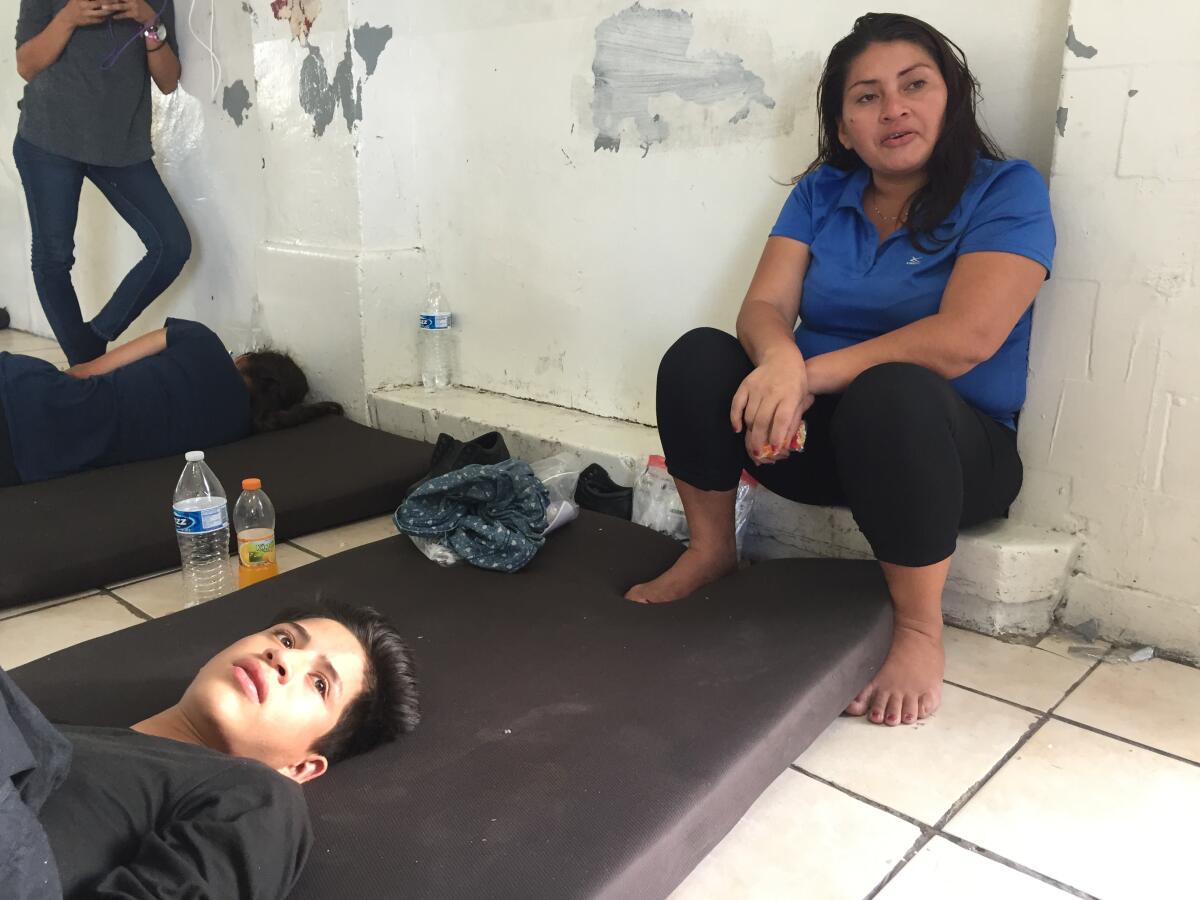
Beti Suyapa Ortega, 36, said she was unaware of the extent of the danger when she boarded a Mexican public bus last month headed for the U.S. border with her son, Robinson Javier Melara, 17. The single mother of five from the northern Honduran state of Yoro said she was fleeing maras, or gangs, that demanded weekly extortion payments at her familyâs grocery store.
âThe maras in Honduras are bad, but here I think they are even worse,â Ortega said.
Ortega spoke in a sweltering ground-floor waiting room in the concrete compound of Mexicoâs immigration agency in Nuevo Laredo, where she and others fearful of going outside lingered for hours on plastic chairs and mats strewn on the floor.
On Aug. 4, Ortega said, she and her son were on a bus when a group of about 10 men flagged the vehicle down on the outskirts of Nuevo Laredo. The gangsters demanded that passengers produce identification and forced all foreigners off the vehicle, she said.
âWe control this area!â one of the toughs declared, saying that he and the others were from the Northeast Cartel â the dominant gang in Nuevo Laredo and splinter faction of the hyper-violent Zetas mob.
Ortega and her son were taken to a house where about a dozen other migrants were being held, she said, and the kidnappers grabbed her phone. They found the number of her younger brother, Kevin Joel Ortega, 25, who had arrived in Atlanta a few months earlier. The captors snapped photos of Ortega and her son and dispatched the images to her brother, demanding $8,000 for their release, she said.
âIf he didnât pay, they said they would turn us over to âother people,ââ Ortega said, trembling as she recalled the ominous phrasing. âMy brother said it would take him time to raise the money, that he had just arrived, but please not to do anything to us.â
Ortega and her son were held for two weeks in a room with others, sleeping on the floor, receiving two daily meals â mostly beans and rice â and spending much of the time bored and watching a large flat-screen TV, she said. Her jailers did not physically harm anyone, she said, but angrily called the captivesâ relatives in the United States daily, insisting on the payments.
âA time finally comes when one is not afraid anymore,â said Ortega, who was barefoot as she kept a close eye on her teenage son, the eldest of her five children, resting on the mat in the grimy Mexican immigration outpost. Her other four kids remained in Honduras.
Her brother in Atlanta was instructed to deposit the funds electronically in five different U.S. bank accounts, Ortega said.
On Aug. 18, when the money had been paid, Ortega said, she and her son were driven to a spot along the Rio Grande, where the cartel strictly controls illicit crossings, and taken across the river in an inflated tire tube.
Ortega and her son were detained in U.S. custody in Texas for two nights, she said, before being released with a court date of Dec. 10 in San Antonio.
âWe told them [U.S. immigration authorities] we had been kidnapped, but they didnât believe us,â Ortega said.
On Aug. 20, U.S. Border Patrol officers returned Ortega, her son and 18 other distraught migrants on foot to Nuevo Laredo across the Juarez-Lincoln International Bridge that spans the Rio Grande, in a sullen procession repeated here daily beneath the blazing sun. Many clutched transparent plastic bags emblazoned with the seal of the U.S. Department of Homeland Security and containing notices to appear in immigration court.
But Ortega, like the others huddled in the Mexican immigration depot, said she had no intention of sticking around Nuevo Laredo. She was too frightened. She and fellow migrants were waiting for bus transport to Tapachula, a Mexican city near the Guatemalan border. The one-way rides are a Mexican government initiative that serves a double purpose â removing discouraged migrants from the perilous border zone, while also diminishing the chances that they will make the long and hazardous trip back for U.S. court dates.
âWeâve had enough,â Ortega said.
Also waiting for the bus was Maria Suyapa Rodriguez, 35, and her 12-year-old son. She and her son, she said, had also been kidnapped â on Aug. 15 at the Nuevo Laredo bus terminal, one of the most treacherous spots in town. The two were released two days later when her sister in New York agreed to pay a ransom, said Rodriguez, who did not know the amount. The pair subsequently crossed the Rio Grande, she said, and surrendered to the Border Patrol, which returned them to Mexico.
Like Ortega, Rodriguez said she had given up and would forgo her Jan. 10 U.S. court date and return home to Honduras, following the tracks of so many migrants, broke and petrified of Mexican organized crime.
In one case, said Father Lopez, a Guatemalan man swallowed his phoneâs SIM card to prevent kidnappers from tracking down relatives. A Honduran kidnap victim recalled flushing papers with the scrawled numbers of U.S. kin down the toilet.
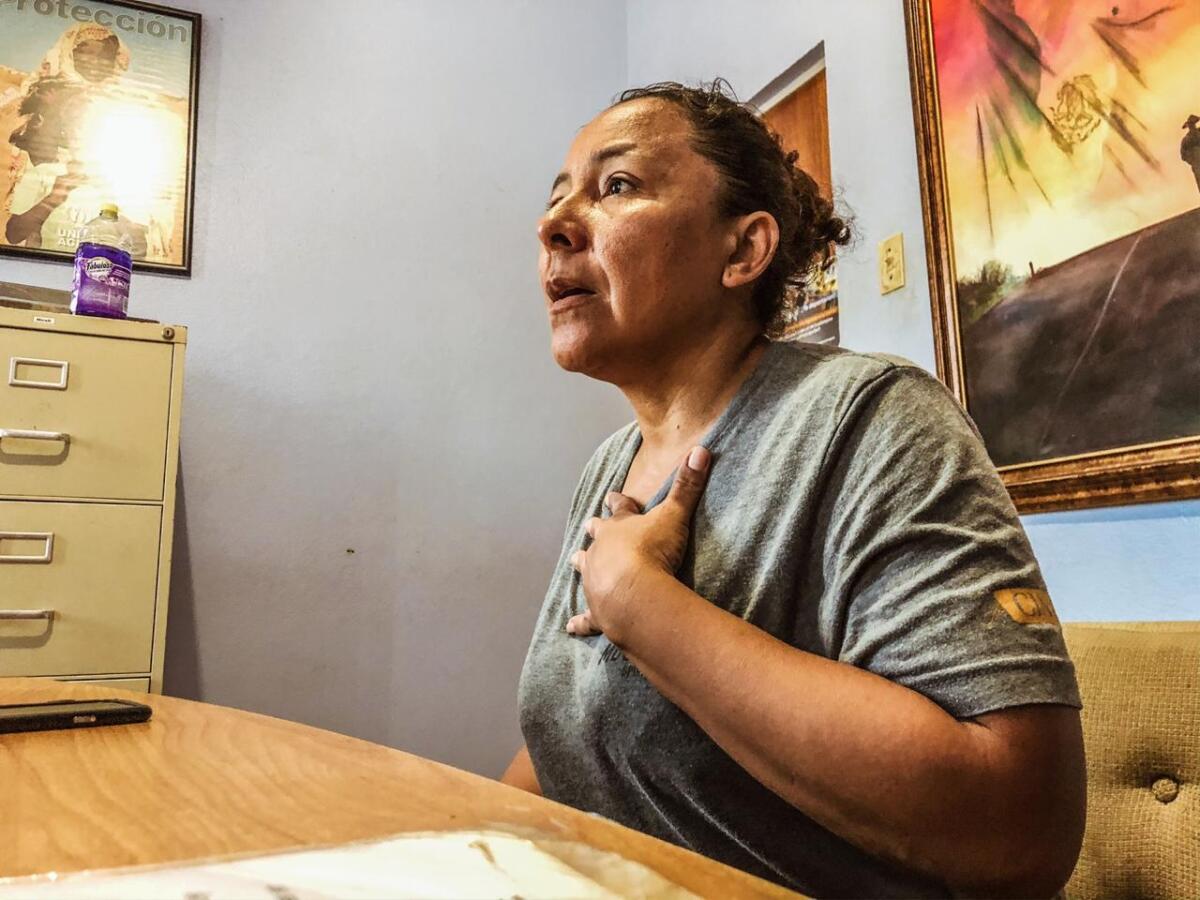
Among the recent clients at Casa de Migrante Nazareth was Rosa Emilia Torrez, 45, her husband and her two children, a 12-year-old son and an infant daughter. Kidnappers grabbed the family at the Nuevo Laredo bus station July 21, Torrez said, two days after U.S. immigration authorities expelled them back to Nuevo Laredo. The family had planned to take a bus to Durango, Mexico, and wait at a relativeâs home until their Sept. 25 U.S. court date, Torrez said.
Their captors released the family July 28, according to Torrez, after her brother-in-law in New Orleans paid $16,000, negotiated down from an initial demand of $32,000.
The kidnappers, Torrez said, then insisted on taking the family back across the Rio Grande to Texas, where, Torrez said, the Border Patrol arrested the family again.
Torrez said she tried to explain to the agents that the kidnappers forced them to return to the U.S. side â and that they feared being sent back to Mexico yet again â but no one paid any attention.
âWe just take your fingerprints and send you back to Mexico,â the Border Patrol agent told her, Torrez said.
U.S. immigration authorities returned the family to Nuevo Laredo on Aug. 1, said Torrez, who added that her family plans to find safe housing somewhere in Mexico and show up for their immigration hearing in Texas later this month.
âWe came this far,â Torrez said. âWe arenât turning back now.â
Times staff writer Molly Hennessy-Fiske in Houston and Cecilia Sanchez of The Timesâ Mexico City bureau contributed to this report.
More to Read
Sign up for Essential California
The most important California stories and recommendations in your inbox every morning.
You may occasionally receive promotional content from the Los Angeles Times.


